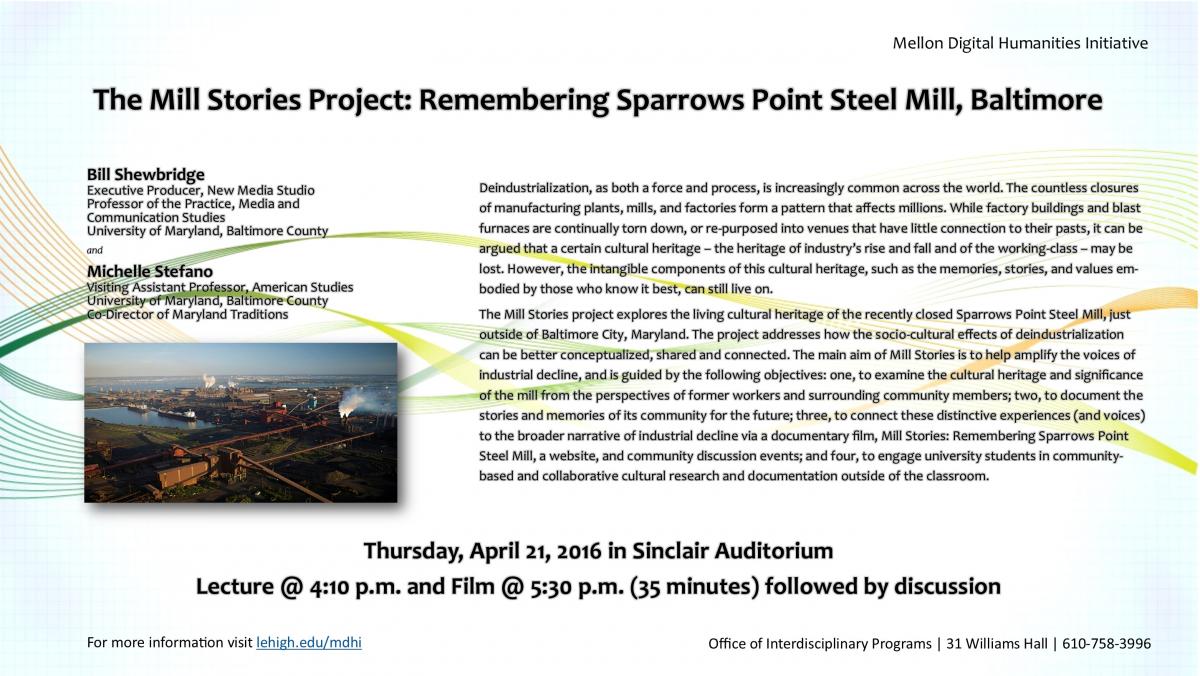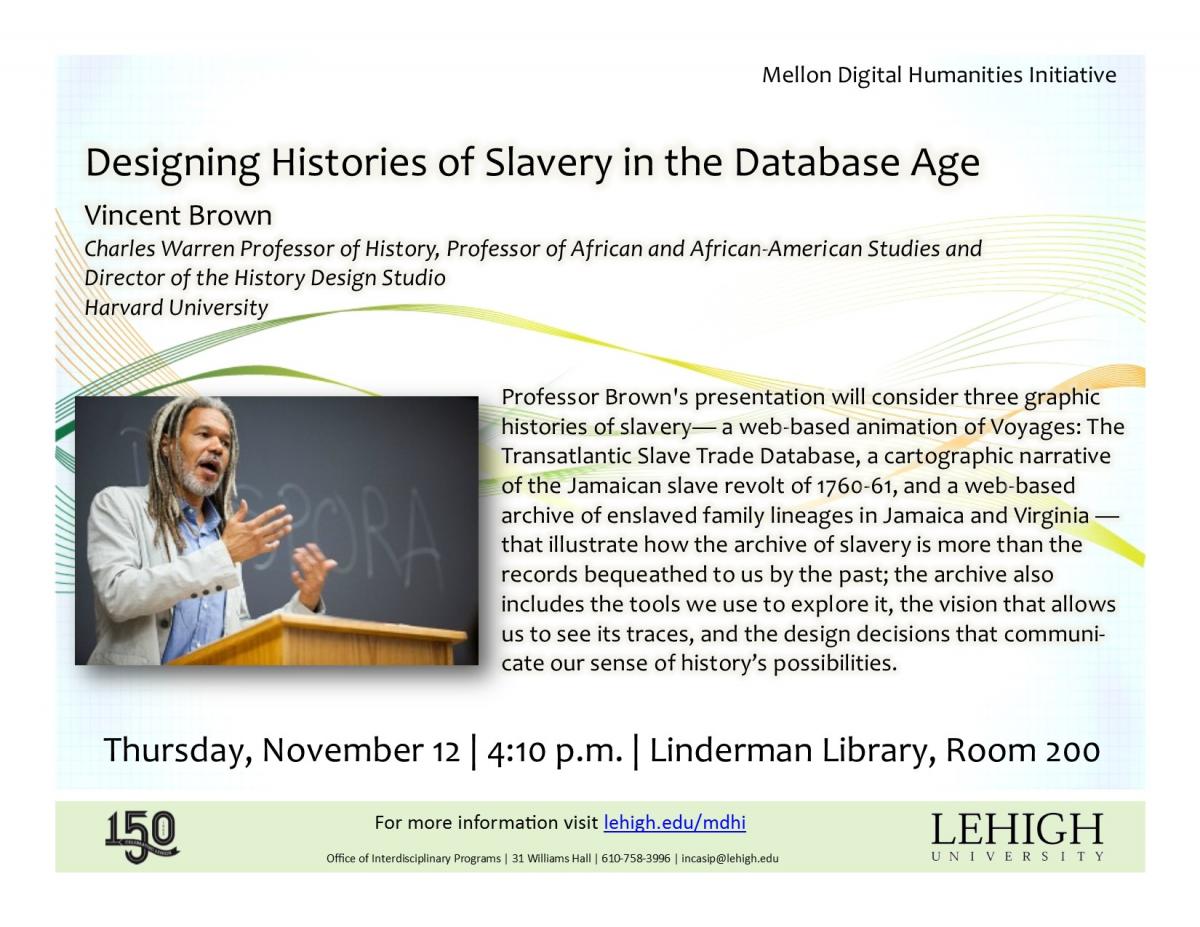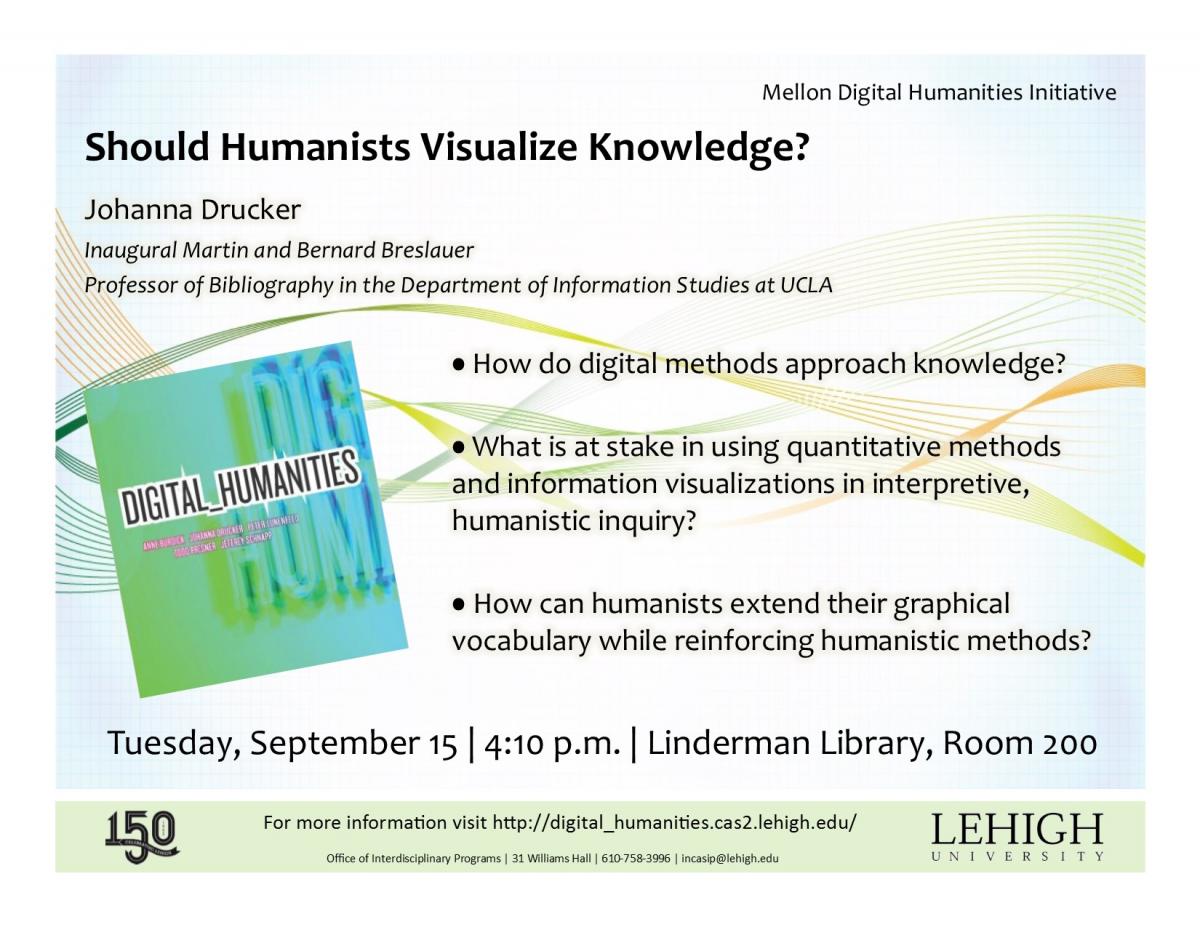Past events from the 2015-2016 film and lecture series:
2016 Film Series: "Communities"

A film series of three first-run and recent documentary films that explore how individuals from across different walks of life form their own communities, and what it means to feel kinship and belonging. Focusing on community structures and relationships that spring up in places where ordinary instruments of social and economic support are failing or absent, the films highlight parallel narratives from overlooked corners of American life: that of a Vietnam veteran and motorcycle rider who finds companionship in his circle of fellow veterans and his marriage to a Mexican wife (Stray Dog); three resilient young men from the rural Midwest and the bond they have with themselves, their families, and their own economically struggling town (Rich Hill); and the story of a western Pennsylvania steel town fallen on hard times, and the predominately African-American residents who refuse to give up on what is left of their community (Braddock, America), told by two French documentary filmmakers. Presented in part by Lehigh University's Mellon Digital Humanities Initiative, with funding from the Andrew W. Mellon Foundation.
- Tuesday, March 29, 7:15 pm - Stray Dog, directed by Debra Granik (2014)
Talk back after the film with:
-Thomas Applebach, Director, Office of Veterans Affairs, Lehigh County
-John Pettegrew, Associate Professor of History, Lehigh University
-Evan Reibsome, Doctoral Candidate, Department of English, Lehigh University - Tuesday, April 12, 7:15 pm - Rich Hill, directed by Andrew Droz Palermo and Tracy Droz Tragos (2014)
Talk back after the film with:
-Kate Crassons, Associate Professor of English, Lehigh University
-Katie Weeks, filmmaker, Temporary Shelter
-Diane Elliot, Executive Director, New Bethany Ministries - Tuesday, April 26, 7:15 pm - Braddock, America, directed by Gabriella Kessler (2013)
Talk back after the film with:
-Seth Moglen, Associate Professor of English, Lehigh University
-Lester Clore, Retired Steelworker and Union Official; Board Member, Steelworkers Archives
-Tom Sedor, Retired Steelworker; Board Member, Steelworkers Archives
-Javier Toro, Program Director, Community Action Committee of the Lehigh Valley
All films are free and open to the public, but tickets must be reserved by calling or stopping by the ArtsQuest Box Office at 610-297-7100. More information is available here.
2015-2016 Lectures
-
Bill Shewbridge and Michelle Stefano lecture and film screening, Thursday, April 21. Lecture at 4:10 p.m., film screening at 5:30 p.m. in Sinclair Auditorium

Join the 4:10 p.m. lecture to hear filmmakers Bill Shewbridge and Michelle Stefano discuss their film "The Mill Stories Project: Remembering Sparrows Point Steel Mill, Baltimore." The lecture will be followed by a screening of their film at 5:30 p.m.
Event is free and open to the public.
-
November 12, 2015
 Vincent Brown Lecture, "Designing Histories of Slavery for the Database Age"
Vincent Brown Lecture, "Designing Histories of Slavery for the Database Age"
Description: Multimedia scholarship invites reconsideration of how history has been, could be, and should be represented. By wrestling creatively and collectively with the difficult archival problems presented by social history of slavery, I hope to chart new pathways for pondering history’s most painful and vexing subjects. This presentation considers three graphic histories of slavery— a web-based animation of Voyages: The Transatlantic Slave Trade Database, a cartographic narrative of the Jamaican slave revolt of 1760-61, and a web-based archive of enslaved family lineages in Jamaica and Virginia — that illustrate how the archive of slavery is more than the records bequeathed to us by the past; the archive also includes the tools we use to explore it, the vision that allows us to see its traces, and the design decisions that communicate our sense of history’s possibilities.
Multi-media historian Vincent Brown is Charles Warren Professor of History, Professor of African and African-American Studies, and Director of the History Design Studio at Harvard University. His research, writing, teaching, and other creative endeavors are focused on the political dimensions of cultural practice in the African Diaspora, with a particular emphasis on the early modern Atlantic world. A native of Southern California, he was educated at the University of California, San Diego, and received his PhD in History from Duke University, where he also trained in the theory and craft of film and video making. He has been the recipient of the Mellon New Directions fellowship, John Simon Guggenheim fellowship, and the National Humanities Center fellowship in the United States. Brown is the author of numerous articles and reviews in scholarly journals, he is Principal Investigator and Curator for the animated thematic map Slave Revolt in Jamaica, 1760-1761: A Cartographic Narrative (2013), and he was Producer and Director of Research for the television documentary Herskovits at the Heart of Blackness (2009), recipient of the 2009 John E. O’Connor Film Award of the American Historical Association, awarded Best Documentary at both the 2009 Hollywood Black Film Festival and the 2009 Martha’s Vineyard African-American Film Festival, and broadcast nationally on season 11 of the PBS series Independent Lens. His first book, The Reaper’s Garden: Death and Power in the World of Atlantic Slavery (2008), was co-winner of the 2009 Merle Curti Award and received the 2009 James A. Rawley Prize and the 2008-09 Louis Gottschalk Prize.
-
September 15, 2015
Johanna Drucker Lecture, “Should Humanists Visualize Knowledge?”
Johanna Drucker (UCLA) Lecture, “Should Humanists Visualize Knowledge?” from Lehigh IMRC on Vimeo.
 Description: Digital methods adapted from the natural and social sciences embody certain assumptions about knowledge that may or may not be appropriate for the interpretative character of humanistic inquiry. What benefits and liabilities are involved in using quantitative methods and information visualizations for the humanities? Can we imagine modifications or alternatives that would extend our graphical vocabulary in appropriate ways? Also, how might these discrepancies work to expose or even reinforce aspects of humanistic method?
Description: Digital methods adapted from the natural and social sciences embody certain assumptions about knowledge that may or may not be appropriate for the interpretative character of humanistic inquiry. What benefits and liabilities are involved in using quantitative methods and information visualizations for the humanities? Can we imagine modifications or alternatives that would extend our graphical vocabulary in appropriate ways? Also, how might these discrepancies work to expose or even reinforce aspects of humanistic method?
Johanna Drucker is Breslauer Professor of Bibliographical Studies at the Graduate School of Education and Information Studies at the University of California, Los Angeles. Drucker is the author of Graphesis: Visual Forms of Knowledge Production (Harvard University Press, 2014), and co-author of the book Digital Humanities (MIT Press, 2012). She is internationally known for her work in the history of graphic design, typography, experimental poetry, fine art, and digital humanities.
-
Africana Studies, Library & Technology Services and Mellon Digital Humanities Events:
Mark Anthony Neal, "Left of Black" September 15, 2015, 7 pm, Whitaker, 303 and "Will You [Tweet] About Me?: In the Afterlife of Digital Blackness," September 16, 4:10 p.m., STEPS 101
